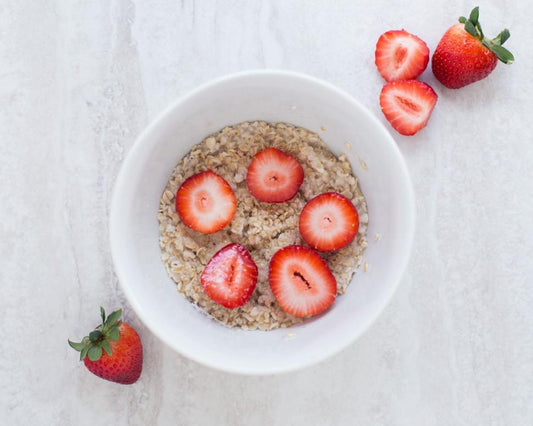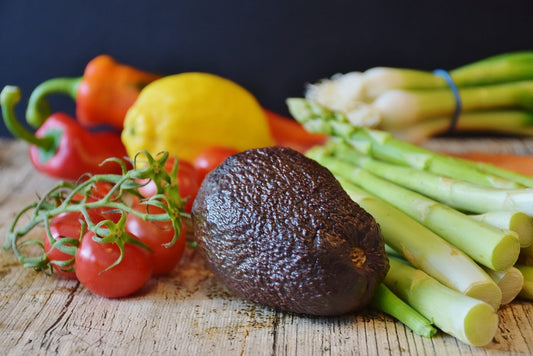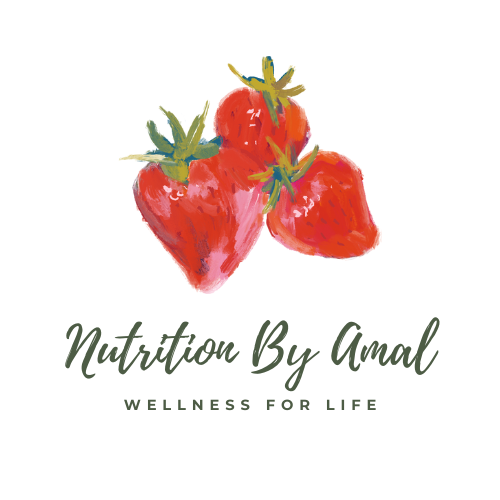How Nutrition Can Empower Your Journey with PCOS
As someone who has worked closely with individuals navigating the challenges of Polycystic Ovary Syndrome (PCOS), I’ve learned how deeply connected nutrition is to managing the condition. PCOS affects so many aspects of a person’s health, from hormonal imbalances and irregular periods to weight gain, acne, and even fertility struggles. While there isn’t a one-size-fits-all approach to managing PCOS, I’ve seen how nutrition can play a crucial role in alleviating symptoms and helping people feel more in control of their health.
How Nutrition Affects PCOS
PCOS is an endocrine disorder that leads to hormonal imbalances, especially in insulin and androgen (male hormone) levels. This imbalance can cause a variety of symptoms, including difficulty losing weight, increased hair growth, irregular periods, and more. Nutrition can help regulate these hormones, support metabolic health, and improve overall well-being.
For example, insulin resistance is a common issue with PCOS, which means the body has trouble using insulin effectively, leading to higher blood sugar levels. This can make it harder to manage weight and may increase the risk of type 2 diabetes. By focusing on specific foods and nutrient-dense meals, you can support your body’s insulin sensitivity, reduce inflammation, and balance hormones.
Foods That Can Help PCOS Symptoms
-
Fiber-Rich Foods
High-fiber foods help regulate blood sugar levels and improve insulin sensitivity, which is especially important for women with PCOS. Fiber slows down the absorption of sugar into the bloodstream, preventing sharp blood sugar spikes. I recommend incorporating plenty of vegetables, whole grains, legumes, and seeds into your meals. Think leafy greens, cauliflower, quinoa, lentils, and chia seeds. These foods also support digestive health, which can be crucial for hormone balance. -
Anti-Inflammatory Foods
Inflammation is often a contributor to PCOS symptoms, so adding anti-inflammatory foods to your diet can be helpful. Omega-3 fatty acids, found in foods like salmon, walnuts, and flaxseeds, are known for their anti-inflammatory properties. Additionally, spices like turmeric and ginger can reduce inflammation in the body and support overall well-being. -
Lean Protein Sources
Protein helps stabilize blood sugar levels and keeps you feeling fuller for longer. Lean proteins like chicken, turkey, tofu, and beans are excellent options for women with PCOS. They also support muscle mass and overall metabolic health, which can be important if weight management is a concern. -
Healthy Fats
Incorporating healthy fats into your diet can help balance hormones and improve insulin sensitivity. Avocados, olive oil, and nuts like almonds and walnuts provide heart-healthy fats that also support hormone production. Balancing fat intake is especially important for managing symptoms like irregular periods or excess hair growth, which are related to hormone imbalances. -
Low-Glycemic Index (GI) Foods
Eating low-GI foods helps manage blood sugar levels by preventing spikes. These foods are digested more slowly, leading to a gradual rise in blood sugar. Some great low-GI foods include sweet potatoes, berries, beans, and non-starchy vegetables. They provide steady energy throughout the day without triggering hormonal fluctuations.
Foods That Can Harm PCOS Symptoms
-
Refined Carbs and Sugary Foods
Refined carbs like white bread, pasta, and sugary snacks can cause rapid spikes in blood sugar, which, in turn, can lead to an increase in insulin levels. This exacerbates insulin resistance and can worsen PCOS symptoms. I advise my clients to limit their intake of processed foods, sugary drinks, and sweets. Instead, choose whole grains, fruits, and vegetables to maintain stable blood sugar levels. -
Dairy (for Some Women)
For some women with PCOS, dairy can trigger acne or contribute to inflammation. This may be linked to the hormonal imbalances caused by PCOS, as dairy products can increase androgen levels (male hormones). While not all women with PCOS are sensitive to dairy, I recommend paying attention to how your body reacts to milk, cheese, and yogurt. If dairy seems to aggravate symptoms, consider alternatives like almond milk or coconut yogurt. -
Processed Meats and Trans Fats
Processed meats, such as sausages, hot dogs, and deli meats, as well as foods containing trans fats (like some packaged snacks or fast food), can increase inflammation in the body. For women with PCOS, inflammation can exacerbate symptoms, so I encourage a diet that is free from highly processed foods and focuses on whole, nutrient-dense meals. -
Caffeine
Some women with PCOS report that caffeine can interfere with hormone balance, particularly in terms of cortisol (the stress hormone). While the evidence is not conclusive, it might be helpful to limit caffeine intake—especially if you’re already struggling with symptoms like anxiety, fatigue, or sleep disturbances. Opting for herbal teas like peppermint or chamomile can be a soothing alternative.
Managing PCOS through nutrition doesn’t have to be overwhelming, but it does require mindful choices that support your body’s hormonal and metabolic health. By incorporating whole foods, fiber, healthy fats, and anti-inflammatory ingredients, you can help balance your hormones, regulate insulin levels, and reduce inflammation. Remember, every person’s body is different, and what works for one individual might not work for another. Pay attention to your body’s signals and adjust your diet as needed.
-

Muskhan: A Flavorful Memory from My Childhood
Chicken Rolls Coming Right Up! As a dietitian, I often talk to my clients about the power of food to nourish our bodies, but I also know that food has...
Muskhan: A Flavorful Memory from My Childhood
Chicken Rolls Coming Right Up! As a dietitian, I often talk to my clients about the power of food to nourish our bodies, but I also know that food has...
-

Feeling sluggish, lousy or lazy? Help yourself ...
Top 5 Foods That Boost Your Energy Levels Feeling sluggish in the middle of the day? It might be time to rethink your meals! What you eat plays a huge...
Feeling sluggish, lousy or lazy? Help yourself ...
Top 5 Foods That Boost Your Energy Levels Feeling sluggish in the middle of the day? It might be time to rethink your meals! What you eat plays a huge...
-

I am a dietitian on the Mediterranean Diet & he...
A Day on the Mediterranean Diet: Fueling My Body with Superfoods As a dietitian, I’m always passionate about nutrition, not just for my clients but also for myself. Over the...
I am a dietitian on the Mediterranean Diet & he...
A Day on the Mediterranean Diet: Fueling My Body with Superfoods As a dietitian, I’m always passionate about nutrition, not just for my clients but also for myself. Over the...
-

How Nutrition Can Empower Your Journey with PCOS
As someone who has worked closely with individuals navigating the challenges of Polycystic Ovary Syndrome (PCOS), I’ve learned how deeply connected nutrition is to managing the condition. PCOS affects so...
How Nutrition Can Empower Your Journey with PCOS
As someone who has worked closely with individuals navigating the challenges of Polycystic Ovary Syndrome (PCOS), I’ve learned how deeply connected nutrition is to managing the condition. PCOS affects so...




